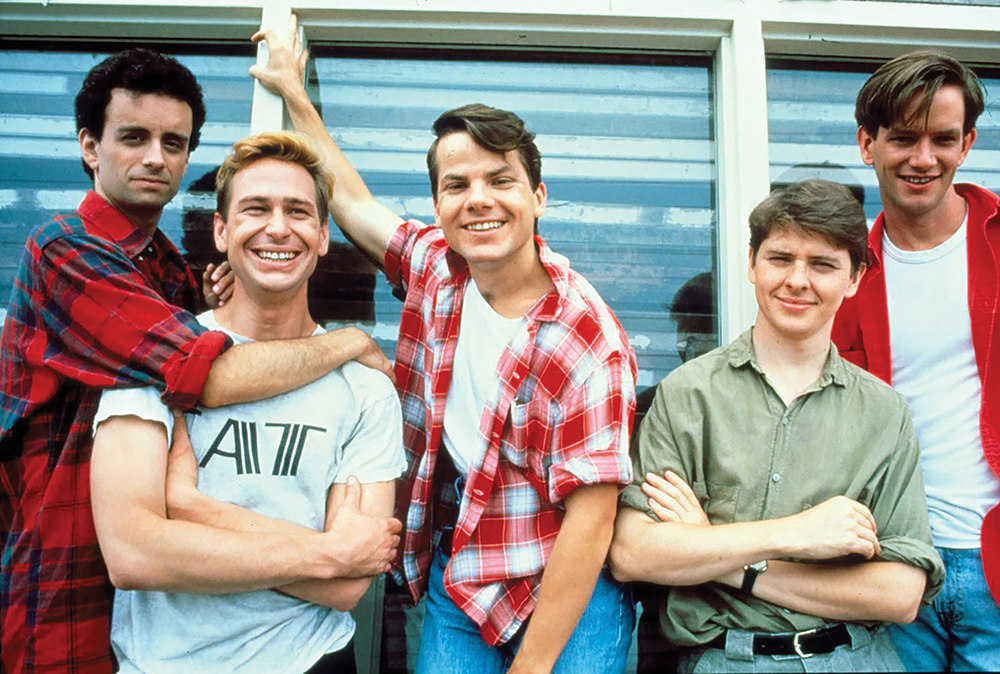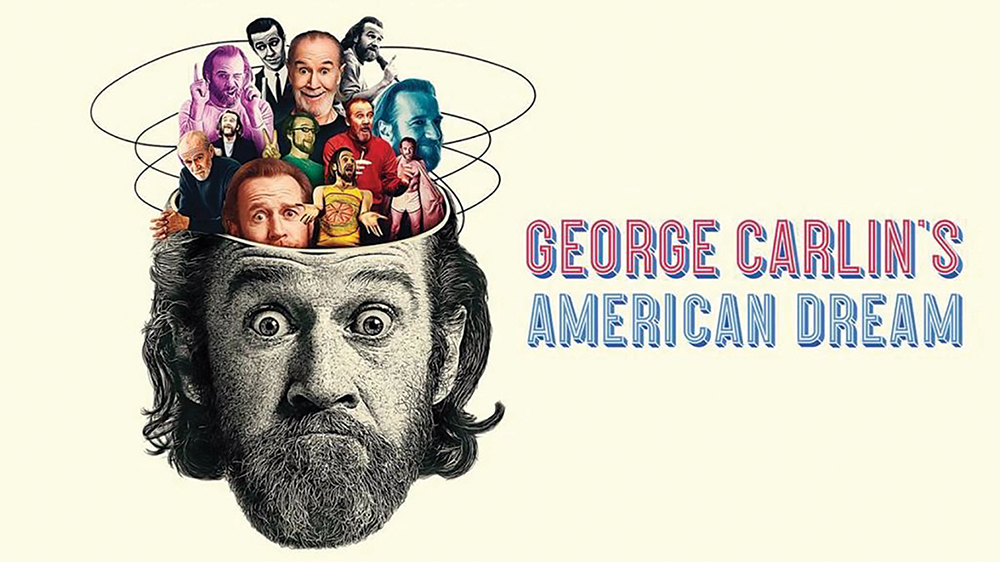In the second episode of HBO’s epic, four-hour documentary George Carlin’s American Dream, Chris Rock recalls the comedy legend telling him, “I’m not an entertainer, I’m a comedian.”
Rock says the offhand comment stuck with him, and he realized that comedians inhabited the same cultural niches that used to be reserved for philosophers. In the very next clip, Jerry Seinfeld disagrees, saying, “I’ve never changed my opinion on anything because of a bit.”
That two of the most popular comedians of the last 50 years, both of whom were heavily influenced by George Carlin, could disagree so profoundly about their role in the world speaks to the breadth and depth of the comedian’s work. During his four decades in the comedy spotlight, Carlin mastered both the observational comedy of the everyday, which propelled Seinfeld to becoming the biggest TV comedy of the 1990s, and the insightful social commentary, which keeps his words alive in today’s online political discourse. The new documentary, by directors Judd Apatow (something of a comedy legend himself) and Michael Bonfiglio, aims to detail the full scope of the man who reinvented comedy many times over.

Made with the help of his daughter Kelly Carlin and second wife Sally Wade, American Dream boasts a wealth of both Carlin’s home movies and his TV appearances, of which there were literally thousands. In his early days, he idolized Danny Kaye, and every step of his journey from radio DJ to goofy variety show guest was calculated as a way to break into the movies. But the rebellious streak that got him kicked out of the Air Force made him too dangerous for the mainstream. And besides, as he would later admit when his post-Seinfeld TV comedy was canceled after one season, “I’m not much of an actor.” Kelly Carlin describes her father as “a road comic until the day he died,” and the interaction with the crowd was always at the heart of Carlin’s art.
Carlin’s real skill was his penetrating insight and brutal honesty. His final reinvention, which coincided with his development of the HBO comedy special, would prove to be the most profound. “The planet is not in jeopardy. We are in jeopardy!” he declared in his now-classic 1992 show Jammin’ in New York. The documentary’s powerful climax comes in an extended montage of events that have happened since Carlin’s 2008 death juxtaposed with clips from his comedy routines that concisely predicted and explained it all.
Around the time Carlin was reinventing himself as a philosopher, a group of Canadian 20-somethings were reinventing sketch comedy. The Kids in the Hall: Comedy Punks reveals that the group got their name from the would-be comedy writers who lingered outside Jack Benny’s office trying to sell him jokes — and Mark McKinney is still bitter that they didn’t use the name he suggested, The Audience.
But the name fit McKinney, Bruce McCulloch, Scott Thompson, Kevin McDonald, and Dave Foley. They were outsiders in the suburban Canada where they grew up, which bred an anarchic attitude in their comedy writing. The five friends spent much of the ’80s playing to tiny audiences of goth weirdos at the Rivoli, a punk rock club in Toronto, Canada, and the documentary features lots of priceless footage of the Kids both killing and dying on stage as they developed their act. By the time the talent scouts from Saturday Night Live arrived in 1986, they couldn’t get tickets to the sold-out shows. After hiring Foley and McKinney for a brief stint as SNL writers, Lorne Michaels brought the whole crew to New York, where they proceeded to spend his development money on ecstasy-fueled nights on the town while creating the defining comedy aesthetic of Generation X. After a bad, mid-’90s breakup brought on by inflated egos, Foley’s gig on NewsRadio, and the cursed production of their only feature film, Brain Candy, the Kids’ cult continued to grow, thanks to endless reruns on Comedy Central.
Where American Dream is a deep dive into the legacy of a timeless artist, Comedy Punks is more of a conventional celebratory documentary. It makes the case that the Kids’ stable of gender-fluid (nobody did drag comedy better than them) and gay-positive characters changed the comedy boys’ club for the better. Certainly, their Dadaist streak left a huge mark on contemporary comedy. Since the documentary’s release coincides with a new season of their seminal show on Amazon Prime Video, it seems the Kids themselves will get the last word.
George Carlin’s American Dream is streaming on HBO Max.
The Kids in the Hall: Comedy Punks is streaming on Amazon Prime.
